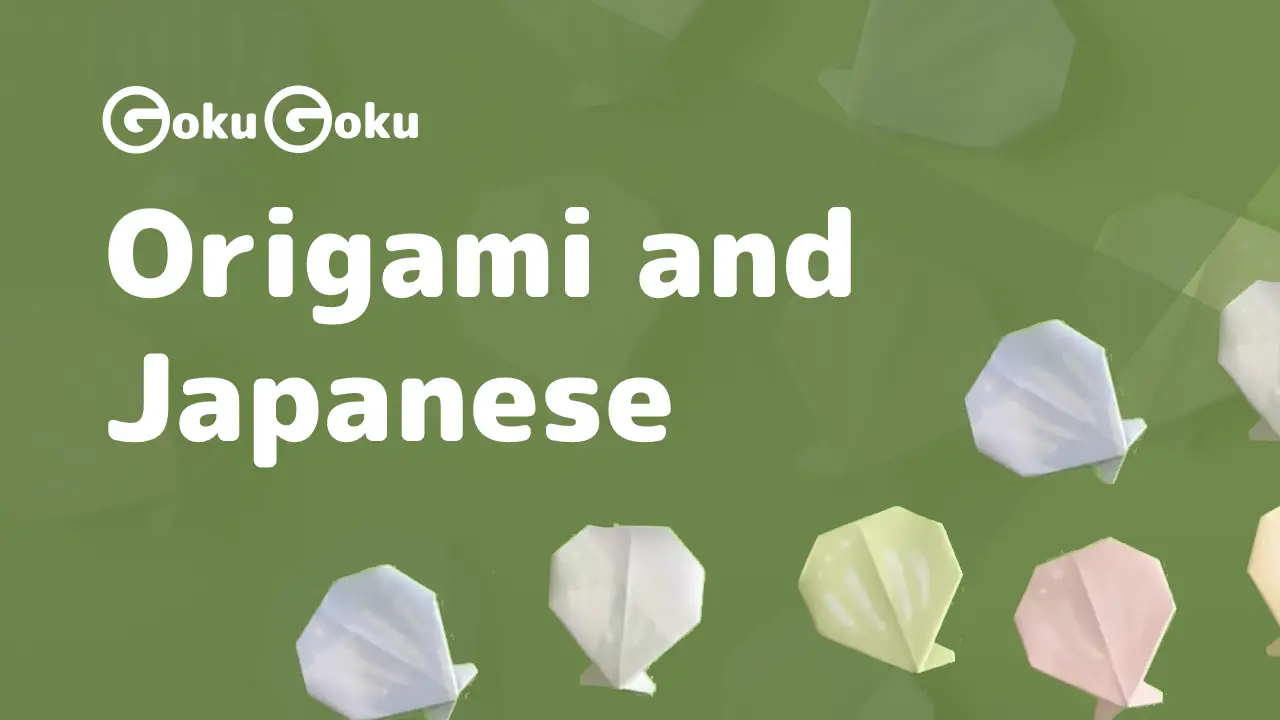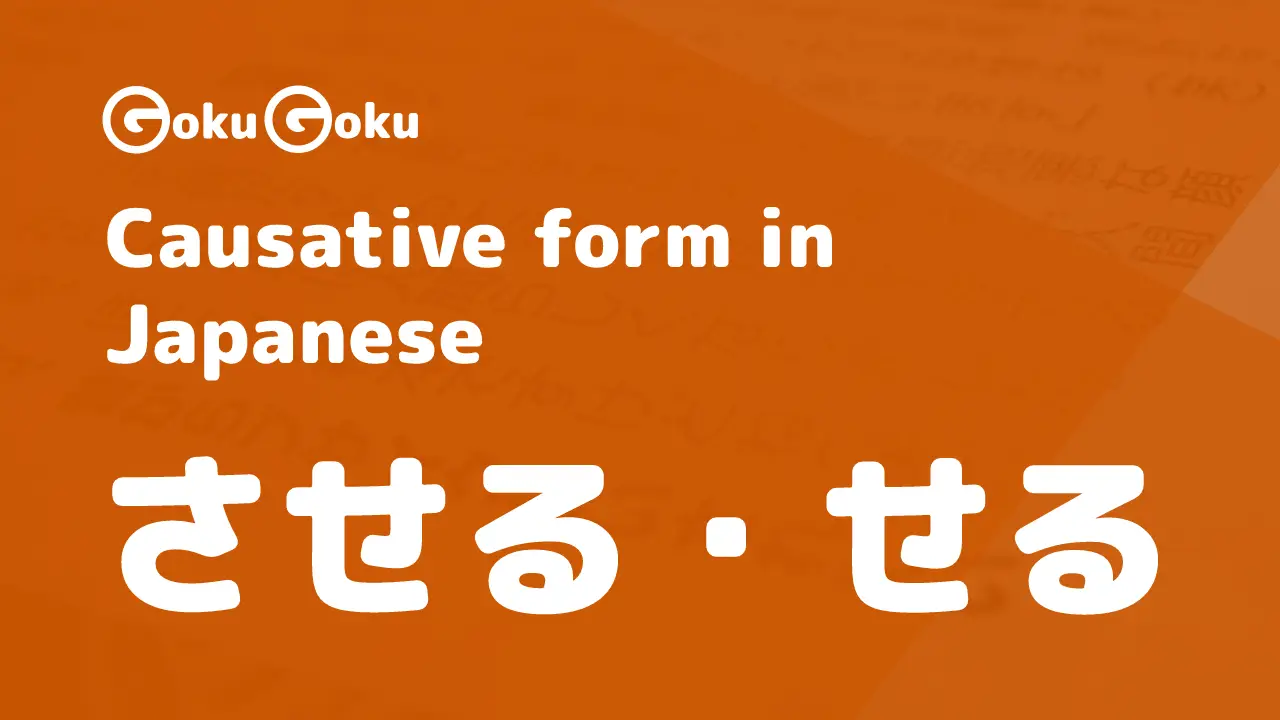Adjectives in Japanese work and are conjugated like verbs.
It is an aspect that differs from many Western languages. It also generates perplexity in many, but once you learn the form, its use will also become natural.
In this post we are going to learn how to conjugate adjectives. Check out our introduction to adjectives if you are just getting started.
Adjectives ending in "i" or "ii"
As with all conjugations in Japanese, we can distinguish two possible forms:
- Informal (or colloquial)
- Formal (or polite)
Informal form
Informal form is used in confidential, friendly situations: generally with family and friends.
Present affirmative
Ends in "i" or "ii": 遠い (is far)
Present negative
We omit the final "i" and add くない: 遠くない (not far)
Past affirmative
We omit the final "i" and add かった: 遠かった (was far away)
Past negative
We omit the final "i" and add くなかった: 遠くなかった (it wasn't far)
Polite form for adjectives in "i"
The Polite form is used in an environment outside our family or circle of friends. You should use this form when addressing superiors, in situations of interaction with unknown people, and in general where polite language is considered adequate.
The polite form is a unique concept of the Japanese language compared to many Western languages.
For this form it is sufficient to add です after the base expression.
Present affirmative
Present negative
For the negative form we can also use ありません, which is the negative present in the polite form of ない (do not exist):
Past affirmative
Past negative
For the negative form we can also use ありませんでした, which is instead negative past courtesy of なかった:
The adjective we saw in the introduction can be used with:
- Attributive function when it precedes the noun it refers to
- Predicative function when it is placed at the end of the sentence as happens for the verbal predicate
遠い町
A distant city.
Attributive form for "i" adjectives
As you can see, in the Attributive form the adjective (遠い far away) is placed before the noun it describes (町 city):
遠い町 (a distant city)
遠くない町 (a city not far away)
遠かった町 (a distant city)
遠くなかった町 (a city not far away)
Predicative form for "i" adjectives
In the Predicative form instead you can notice how the adjective (遠い far away) is placed after the noun it describes (町 city):
あの町は遠い (that city is far away)
あの町は遠くない (that city is not far away)
あの町は遠かった (that city was far away)
あの町は遠くなかった (that city was not far away)
An example from a Website

イタリア旅行でびっくりした事実5つ!イギリスとそう遠くない国イタリアでは結構な驚きがありました!
Five facts that surprised me on my trip to Italy! There were quite a few surprises in Italy, a country not so far from the UK!
Adjectives in "na"
The second category of adjectives is called adjectives in "na", which some grammar defines as "false adjectives", as they behave like nouns in their basic form.
In fact, the addition of the "na" (な) is used to modify the noun that follows.
有名な歌手
A famous singer.
Attributive form for "na" adjectives
To conjugate these adjectives the suffix "na" is omitted and replaced with the following verb forms:
- だった (Past)
- じゃない (Not negative past)
- じゃなかった (Past negative)
Present affirmative
有名な (famous)
Present negative
有名じゃない (not famous)
Past affirmative
有名だった (who was famous)
Past negative
有名じゃなかった (who was not famous)
The form we have seen is used in the attributive function of the adjective: in conjunction with a noun to which it refers directly.
Let's see some examples:
近い町
A nearby town
近くない場所
A place not close
美味しいアイスクリーム
A good ice cream
美味しかった料理
A tasty dish (which was tasty)
親切な人
A kind person
親切だった人
A kind person (who had been kind)
難かしくなかったテスト
A not difficult exam (which was not difficult)
有名な人 (a famous singer)
有名じゃない人 (an unknown singer)
有名だった人 (a singer who was famous)
有名じゃなかった人 (a singer who was not famous)
Predicative form for "na" adjectives
Now let's see the predicative function of adjectives, when they are placed at the end of the sentence and assume the function of predicate.
It is a very simple conjugation as only the position of the elements changes, but the form remains exactly the same as in the attributive use:
町は近いだ
The city is nearby
場所は近くない
The place is not far away
人は親切だ
The person is kind
テストは難かしくなかった
The exam was not difficult
The suffix "na" is replaced by だ (the verb to be)
あの歌手は有名だ (that singer is famous)
あの歌手は有名じゃない (that singer is not famous)
あの歌手は有名だった (that singer was famous)
あの歌手は有名じゃなかった (that singer was not famous)
Polite form for adjectives in "na"
For the polite conjugation it is enough to substitute the polite forms of the verb だ (to be):
- です (Not past)
- じゃありません (Negative not passed)
- でした (Past)
- じゃありませんでした (Past negative)
あの歌手は有名です。
That singer is famous.
あの町はとても静かでした。
That city was very quiet.
Here are some sentences in which various adjectives appear in various forms: let's try to recognize their forms!
今日は寒い日だ。
Today is a cold day.
あの歌手は有名だ。
That singer is famous.
あの町はとても静かだった。
That city was really quite.
素敵な服だ!。
What a beautiful dress!
冷たい飲み物が欲しい!。
I want a cold drink!
高い家賃は本当に無駄。
An expensive rent is really a waste.
That's all for this second introductory part on Japanese adjectives.
If you are interested in learning more and want to stay updated on the next posts, subscribe to the newsletter below 👇





